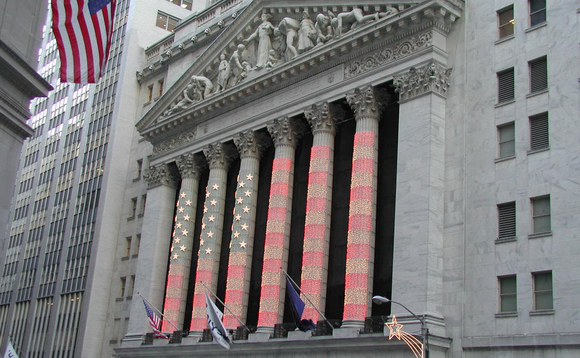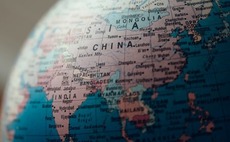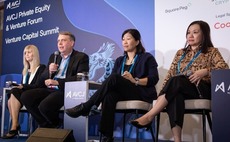
Greater China IPOs triple numbers in the US

Exchanges on the mainland and Hong Kong have together raised nearly $120 billion to date in 2010, while the US has raised just $42 billion, a disparity that showcases the shift from slower-growth, developed economies to high-growth, emerging markets.
A sector-agnostic trend
The financial services sector in China has been leading the charge, spurred by directives from the government to increase capital adequacy ratios. The Agricultural Bank of China alone raised more than $22 billion in the world's largest-ever IPO.
Mining and resources companies have also looked to Greater China for higher valuations and deeper liquidity than their home markets can offer. Benson Wong, a Partner with Pricewaterhouse Coopers, explained, "Looking back 10 or 11 years, it was not as popular in Hong Kong in terms of capital markets activity. Around 1999, the market cap [of the mining, metals and services space] was around HK$80 billion ($12 billion). In August 2010, it is over HK$3,000 billion ($450 billion) - an increase of over 35x."
The Hong Kong Stock Exchange has placed an emphasis on courting natural resources groups - winning IPOs like Rusal, the Russian aluminum major - but companies in a variety of sectors have also taken note. French beauty retail brand L'Occitane raised $700 million in Hong Kong this year, and Prada is considering listing in the SAR next year.
Smaller companies have also seen incredible success on the mainland's second-largest exchange. Hepalink, a Chinese company that exports raw heparin (a blood thinner), listed on the Shenzhen Stock Exchange for $7.75 billion, and made Goldman Sachs a 200x return in the process.
Technology Loves USA
The counter-point to the China IPO frenzy is in the technology sector. Companies looking to capitalize on their achievements in the digital age tend to favor listing in the US. Managing Director of Allegis Capital Spencer Tall notes that American bourses offer an avenue of stability and liquidity that Greater China still is unable to match. "If you look at the sheer size of the [US markets] and market cap, it's a much more stable marketplace than other worldwide exchanges. There's a great deal more liquidity than in other exchanges, and the dollar may be taking a beating, but it's still the currency of choice around the world."
Since October, when China's two largest online video sites announced their intended IPOs within a week of each other, companies including e-commerce sites Dangdang.com and Redbaby.com, gaming publisher Oak Pacific Interactive and financial consultancy firm Uni-Power have all expressed interest in going public, or have actually done it. The announcements signal liquidity realized for backers including GGV Capital, IDG China, JAFCO Asia, Chengwei Ventures, Maverick Capital, Accel Partners, Legend Capital, Softbank and New Enterprise Associates.
Youku's debut on the New York Stock Exchange was touted as one of the largest of the year, earning $203 million and outpacing the $150 million target it had set. It specifically traded at a more than 160% premium to its offering price - up to $33.44 a share - which is said to represent the largest spread for a US-based IPO since Baidu, another Chinese powerhouse, debuted on the Nasdaq in mid-2005. Dangdang's market performance was equally impressive, raising $272 million after its shares traded as high as $16 dollars on its debut day, up from the $11-13 range it previously set.
VC-backed IPOs the next best thing?
According to Managing Director of Lightspeed Ventures Ron Cao, the momentum felt by Chinese companies looking to launch IPOs can also be felt by China's wider VC industry as local and global investors look to get a piece of the action. "China venture has been able to demonstrate returns," Cao told AVCJ. "For example, for this year, a majority of the IPOs around the world are Chinese companies. In addition ... local investors - mostly family offices, wealthy individuals and quite a bit of government money - are becoming LPs in many of the RMB funds being formed."
2011 is poised to be another blockbuster year for Chinese VC-backed firms, when Tudou, Redbaby and Unipower have already stated their intention to launch on either the New York Stock Exchange or the Nasdaq, and Oak Pacific is considering its debut on either a New York or Chinese bourse.
"In terms of why launch there now, there's a lot of cash on the sidelines, and if you're a company that has the cash to go public then this will filter through," Tall added. "It's a great time to go public."
But while some see optimism, others see these numbers as the makings of a problem. Indeed, speculation on the stock market by Chinese investors has fueled what many believe to be a clear asset bubble. With consumer price inflation up 5.1% in November and inflation-adjusted returns on one-year time deposits negative, nay-sayers may well be right.
Latest News
Asian GPs slow implementation of ESG policies - survey
Asia-based private equity firms are assigning more dedicated resources to environment, social, and governance (ESG) programmes, but policy changes have slowed in the past 12 months, in part due to concerns raised internally and by LPs, according to a...
Singapore fintech start-up LXA gets $10m seed round
New Enterprise Associates (NEA) has led a USD 10m seed round for Singapore’s LXA, a financial technology start-up launched by a former Asia senior executive at The Blackstone Group.
India's InCred announces $60m round, claims unicorn status
Indian non-bank lender InCred Financial Services said it has received INR 5bn (USD 60m) at a valuation of at least USD 1bn from unnamed investors including “a global private equity fund.”
Insight leads $50m round for Australia's Roller
Insight Partners has led a USD 50m round for Australia’s Roller, a venue management software provider specializing in family fun parks.






